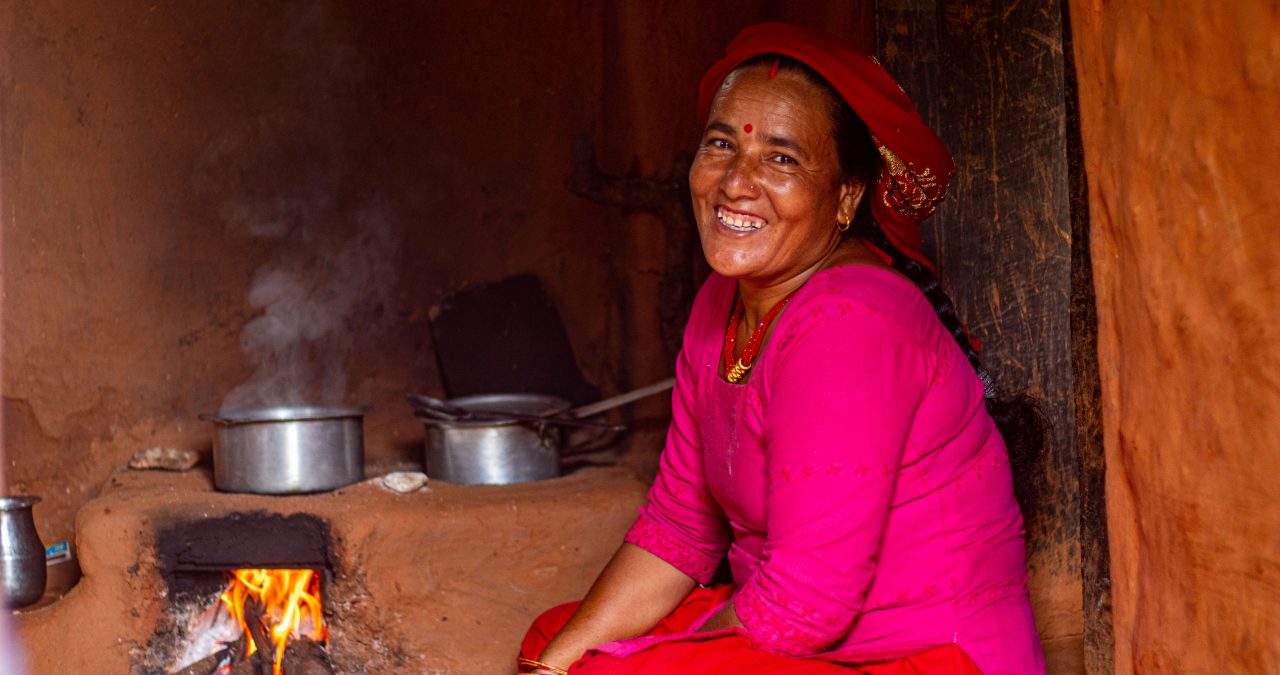Renewable World: Project Completion

Date: 11/01/2022
NextEnergy Foundation supported Renewable World’s E4H project in two communities in the Surkhet District of Nepal, Baispani and Khanikola. This was part of a wider effort which reached six communities and almost 7,000 people through E4H. The project is now complete and NextEnergy Foundation is delighted to announce that the overarching outcomes envisaged for the project were met.
Aim One: Installation of solar systems on the community health posts to offer new energy-enabled health services, including refrigerated medicines, vaccinations, and apparatus to treat indoor pollution related illnesses
Outcome One: The solar systems were successfully installed and three people per community trained to operate and maintain the systems. Thanks to the energy-enabled health services which each health post now provides, 95% of the communities’ inhabitants have now been vaccinated.
Aim Two: Ensure access to improved cookstoves for at least 20% households in the communities.
Outcome Two: In the Baispani community, 65 households now have improved cookstoves, and 92 households do in the Khanikhola community. The cookstoves are reducing the negative health impacts of indoor air pollution and ensuring more efficient use of firewood. Renewable World’s evaluation has found a significant decrease in time spent collecting fuel wood due to the increased efficiency of the improved cook stoves. In addition, 99% of users reported seeing the benefits of the improved cookstoves, with the primary benefit being the reduction in indoor air pollution.
Aim Three: Ensure that 100% of households in the two communities are aware of new energy-enabled services available in their community and the benefits they bring.
Outcome Three: A series of workshops were delivered through the health posts to schools and mothers’ groups within the catchment area of the communities. Through the provision of printed materials – which included information on immunisation, handwashing and personal hygiene, COVID-19 precautions, and childhood health and nutrition – and in collaboration with School Management Committees and Mothers’ Groups, 94.4% percent of respondents to Renewable World’s questionnaire at project completion said they are satisfied with the services provided by the community health, a significant increase from just over 3 percent at baseline.
To ensure a smooth close out of the project, several key activities were carried out, including a review of the project activities by a local appraisal committee (composed of the Rural Municipality chair, vice chair, and chief administrative officer, along with health section chief, ward chairs, and representatives from the six health posts) and a meeting where time was given for different stakeholder groups to discuss and feedback on the project. Overall, the project was extremely well-received, and it was particularly noted that the electrification of the health posts and the delivery of medical equipment had been timely, coming during the COVID-19 pandemic when such services were most needed and when local government budgets had been stretched.
Building on the successful outcomes of this project, and due to the high demand for further such projects from rural municipalities, Renewable World launched a second E4H project in July 2021 which is supporting an additional four off-grid health posts and their surrounding communities, and is considering replicating a similar model in Kenya this year.
A final project video showcasing the outcomes of this project is currently under development and will be shared when complete.
